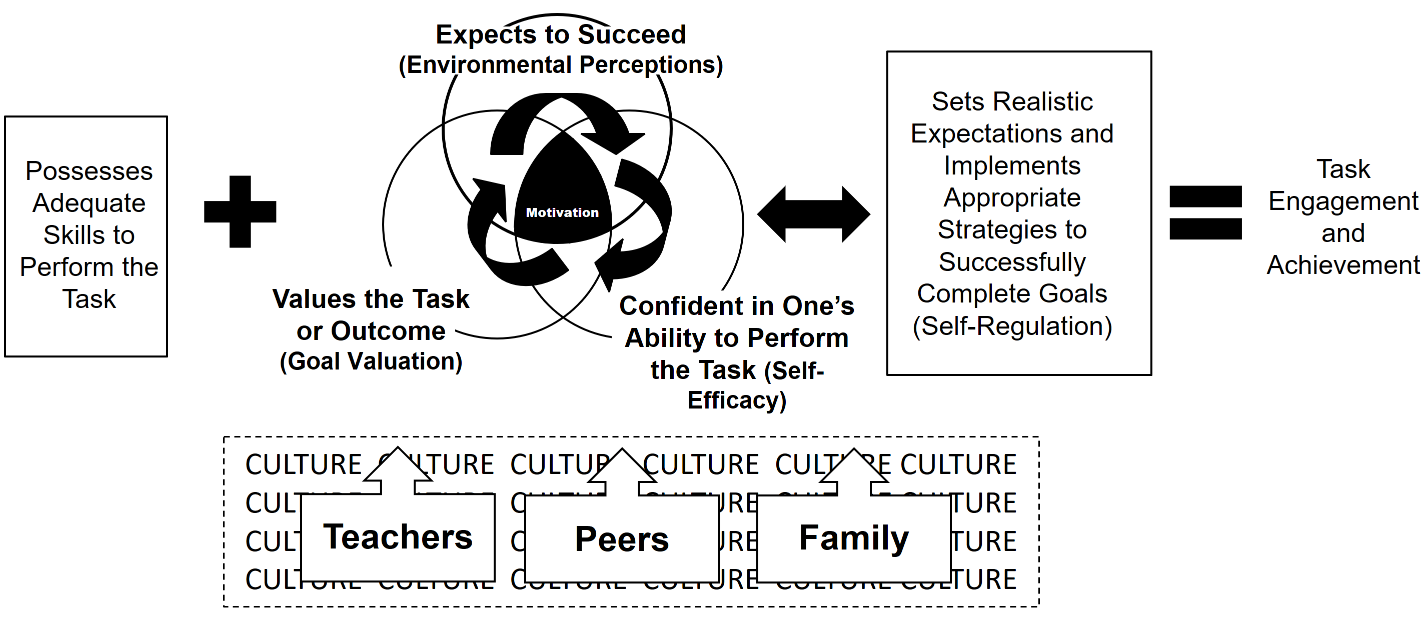Student performance that falls noticeably short of potential, especially for young people with high ability, is bewildering and perhaps the most frustrating of all challenges both teachers and parents face.
-- Sally Reis
All individuals have the ability to learn and attain self-fulfillment; however, many children are at risk of failing to achieve their academic potential. Although gifted students are one group of exceptional learners who are not normally considered at risk for academic failure, the seeming lack of motivation of many academically gifted students is an area of concern and frustration for many teachers, parents, and counselors. Why do some students, who seem capable of outstanding performance, fail to realize their potential? What causes some gifted students to be more motivated than others? Are there strategies educators and parents can implement to motivate students to achieve academically? Extensive research in educational psychology has demonstrated the relationship between four factors (task value, self-efficacy, environmental perceptions, and self-regulation) and achievement.
While there are many factors that contribute to achievement, motivated students appear to exhibit three key perceptions and a resultant behavior (see Figure 1). First and foremost, students find value in their school experience. School is meaningful for them. Motivated students enjoy what they are doing or believe what they are doing will produce beneficial outcomes. Second, they believe they have the skills to be successful. Third, they trust their environment and expect they can succeed in it. When students value the task or outcome and have positive perceptions of themselves and their opportunities for success, they are more likely to implement self-regulatory behavior, setting realistic expectations and applying appropriate strategies for academic success.
Figure 1
Achievement Orientation Model by Del Siegle and D. Betsy McCoach

Podcasts
Professional Learning Online Units
Articles
- Why I Believe I Achieve Determines Whether I Achieve by Del Siegle, D. Betsy McCoach, and Anne Roberts
- Making a Difference: Motivating Gifted Students Who Are Not Achieving by Del Siegle and D. Betsy McCoach
- Curriculum as Motivation for Gifted Students by Catherine A. Little
- Using Self-Regulated Learning to Reverse Underachievement in Talented Students by Sally M. Reis and Meredith J. Greene
- Reconsidering Regular Curriculum for High Achieving Students, Gifted Underachievers, and Relationship between Gifted and Regular Education by Sally M. Reis
- Underachievement in Gifted and Talented Students with Special Needs by Sally M. Reis and D. Betsy McCoach
- Compensation Strategies Used by High Ability Students with Learning Disabilities by Sally M. Reis and Lilia M. Ruban
Additional Videos
- 2020 NAGC Presentation on Using SEM Pedagogy to Reverse Underachievement in Talented Students
- 2020 Confratute Keynote on Underachievement and Student Motivation
- ECHA Presentation on Research Related to the Achievement Orientation Model
 Support the Renzulli Center
Support the Renzulli Center